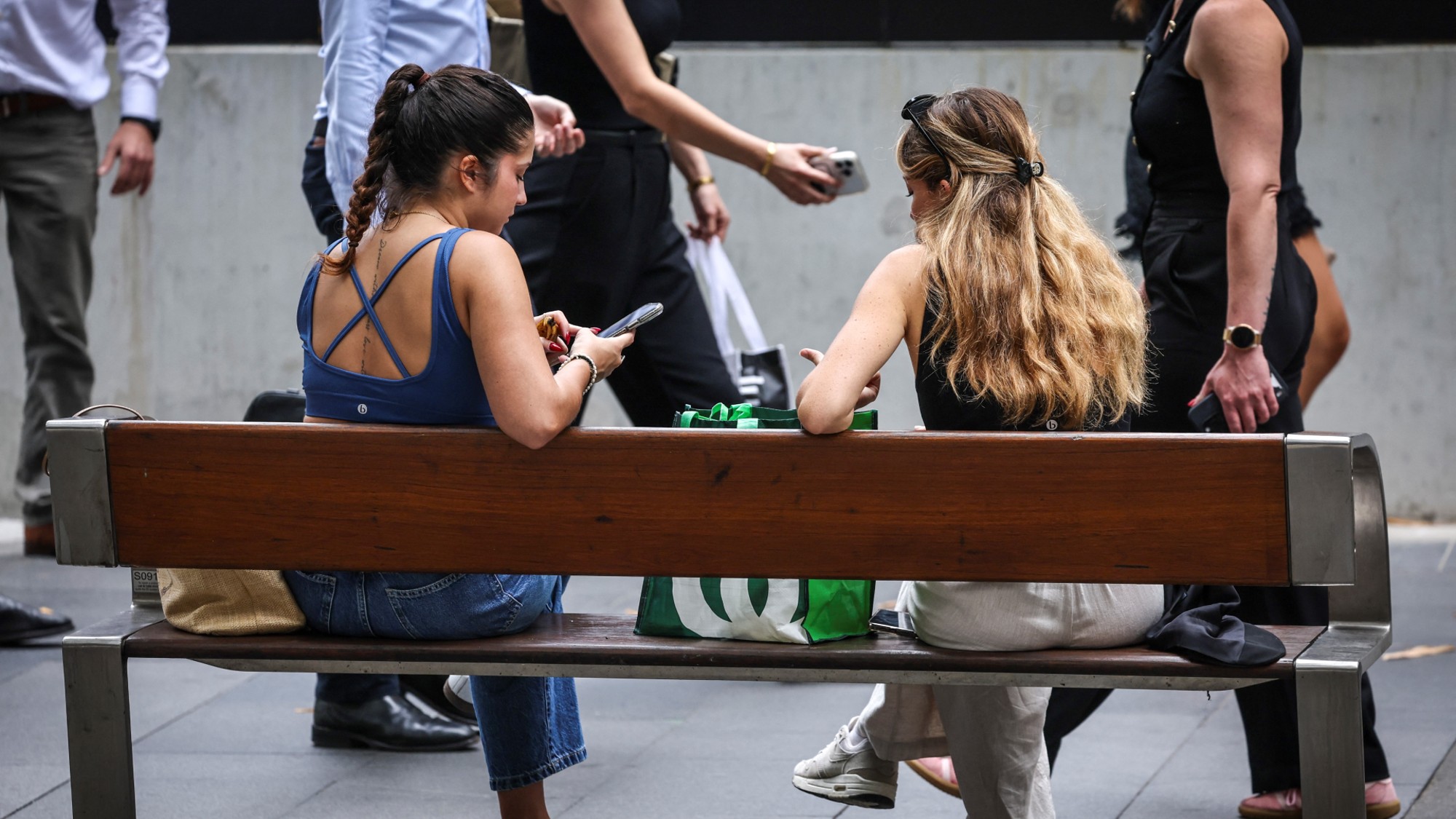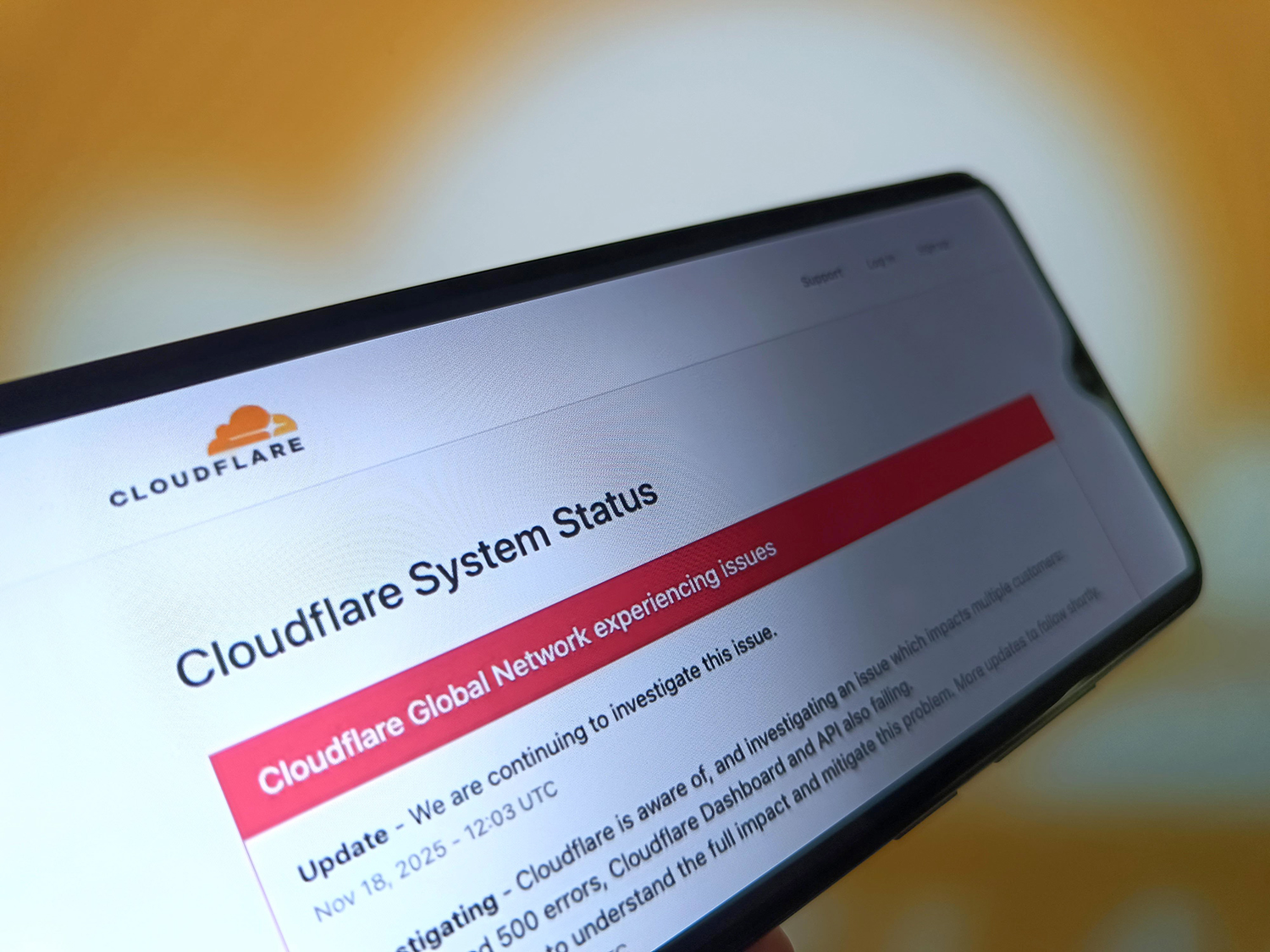Social media ban: will Australia's new age-based rules actually work?
PM Anthony Albanese's world-first proposal would bar children under 16 even if they have parental consent, but experts warn that plan would be ineffective and potentially exacerbate dangers

A free daily email with the biggest news stories of the day – and the best features from TheWeek.com
You are now subscribed
Your newsletter sign-up was successful
"Social media is doing harm to our kids, and I'm calling time on it."
So said Australia's prime minister today, announcing proposals for world-first legislation banning children under 16 from social media.
Anthony Albanese's proposal would also not exempt children under 16 already on social media – they won't be allowed to use Instagram, TikTok or YouTube even if they have parental consent – as concerns grow worldwide over the threat of cyberbullying and predatory grooming, alongside potential adverse effects of social media on young people's mental and emotional health. The government will introduce legislation to parliament by the end of the year, and a ban would take effect 12 months after the law passes, Albanese said, putting the onus on tech companies to enforce it.
The Week
Escape your echo chamber. Get the facts behind the news, plus analysis from multiple perspectives.

Sign up for The Week's Free Newsletters
From our morning news briefing to a weekly Good News Newsletter, get the best of The Week delivered directly to your inbox.
From our morning news briefing to a weekly Good News Newsletter, get the best of The Week delivered directly to your inbox.
'Double the risk of depression and anxiety'
Up to 95% of teenagers use social media and more than a third say they are on it "almost constantly", according to the Pew Research Center.
Australia's youth are some of the most connected in the world, with about 97% using social media across an average of four platforms. Nearly two-thirds of Australian parents of teenagers say they are concerned about that, according to a 2024 survey by youth mental health service ReachOut. "Parents want their kids off their phones and on the footy field. So do I," Albanese said in September.
More than half of Australians feel lonely every week, according to a survey of more than 4,000 aged 16 and over by Medibank's Loneliness Population Index. And among lonely 16-24-year-olds, social media was the "top answer" for why, said the Herald Sun. More than 40% in that age bracket said seeing posts of other people at social events "trigger their feelings of isolation". More than half (58%) of all respondents aged 16-24 supported banning under 16s from social media.
It is "increasingly clear that the more time youth spend online, the higher the risk of mental health problems", said The Associated Press. According to studies cited by the US surgeon general Vivek Murthy last year, kids who use social media for more than three hours a day face "double the risk of depression and anxiety".
A free daily email with the biggest news stories of the day – and the best features from TheWeek.com
'The opposite of what we'd recommend'
The risks of social media on young brains are indeed stark – but most participants to a round table by the American Psychological Association on the matter agreed that a total ban was "not an effective solution".
More than 140 Australian and international academics with expertise in technology and child welfare signed an open letter to Albanese opposing the age limit, calling it "too blunt an instrument to address these risks effectively".
Enforcing it will also be "extremely challenging", said Lisa M. Given, professor of information sciences at RMIT University, in an article on The Conversation. Reviewing all existing accounts to verify age is "a technological nightmare". The ban also won't do anything to "force social media companies to eliminate harmful content". It will "give parents a false sense of security, while preventing young people from accessing important information" such as current affairs, politics and potential employment.
The plan also has a "blind spot", said Reuters. Experts say age restrictions could cut off migrants, LGBT+ and minority youths from essential "social support". For young refugees, it could mean "losing a direct line" to family in their home country. It could even exacerbate the very issues it's aiming to combat: a ban could increase feelings of loneliness and isolation among youths with mental health issues, many of whom access support via social media. "The ban is pretty much the opposite of what we would recommend," said Amelia Johns, an associate professor of digital media at University of Technology, Sydney.
And frankly, said Reuters, it's not going to work. No attempts to enforce age restrictions anywhere in the world have succeeded, "partly due to access to virtual private networks (VPNs)" that hide users' location and information. An age-verification trial in France, which last year passed a law requiring parental consent for social media users under 15, found that "nearly half the country's teenagers could use VPNs". Software that allows users to bypass identification requirements on YouTube has reportedly been downloaded millions of times.
Harriet Marsden is a senior staff writer and podcast panellist for The Week, covering world news and writing the weekly Global Digest newsletter. Before joining the site in 2023, she was a freelance journalist for seven years, working for The Guardian, The Times and The Independent among others, and regularly appearing on radio shows. In 2021, she was awarded the “journalist-at-large” fellowship by the Local Trust charity, and spent a year travelling independently to some of England’s most deprived areas to write about community activism. She has a master’s in international journalism from City University, and has also worked in Bolivia, Colombia and Spain.
-
 Political cartoons for February 15
Political cartoons for February 15Cartoons Sunday's political cartoons include political ventriloquism, Europe in the middle, and more
-
 The broken water companies failing England and Wales
The broken water companies failing England and WalesExplainer With rising bills, deteriorating river health and a lack of investment, regulators face an uphill battle to stabilise the industry
-
 A thrilling foodie city in northern Japan
A thrilling foodie city in northern JapanThe Week Recommends The food scene here is ‘unspoilt’ and ‘fun’
-
 Are Big Tech firms the new tobacco companies?
Are Big Tech firms the new tobacco companies?Today’s Big Question A trial will determine whether Meta and YouTube designed addictive products
-
 Can Europe regain its digital sovereignty?
Can Europe regain its digital sovereignty?Today’s Big Question EU is trying to reduce reliance on US Big Tech and cloud computing in face of hostile Donald Trump, but lack of comparable alternatives remains a worry
-
 Will regulators put a stop to Grok’s deepfake porn images of real people?
Will regulators put a stop to Grok’s deepfake porn images of real people?Today’s Big Question Users command AI chatbot to undress pictures of women and children
-
 Is social media over?
Is social media over?Today’s Big Question We may look back on 2025 as the moment social media jumped the shark
-
 The dark side of how kids are using AI
The dark side of how kids are using AIUnder the Radar Chatbots have become places where children ‘talk about violence, explore romantic or sexual roleplay, and seek advice when no adult is watching’
-
 Australia’s teen social media ban takes effect
Australia’s teen social media ban takes effectSpeed Read Kids under age 16 are now barred from platforms including YouTube, TikTok, Instagram, Facebook, Snapchat and Reddit
-
 Blackouts: Why the internet keeps breaking
Blackouts: Why the internet keeps breakingfeature Cloudflare was the latest in a string of outages
-
 Spiralism is the new cult AI users are falling into
Spiralism is the new cult AI users are falling intoUnder the radar Technology is taking a turn